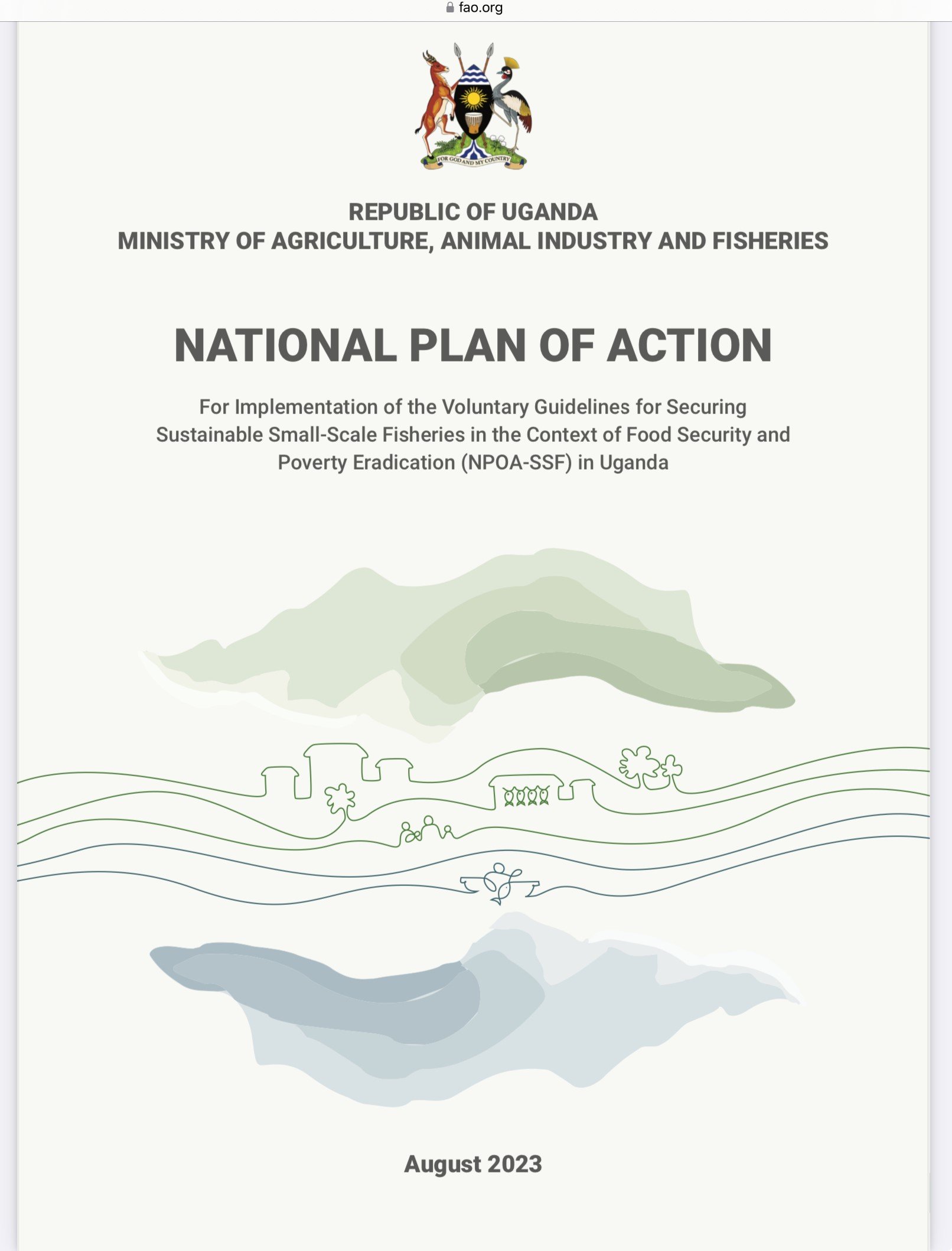Uganda’s National Plan of Action for Small-Scale Fisheries: A Milestone in Sustainable Fisheries Management
The fisheries sector plays a crucial role in the global economy, contributing significantly to food and nutrition security, foreign trade, employment, and local economic development. However, small-scale fishers and fish workers, who form the majority of fisheries stakeholders, often face marginalization in decision making processes. As a result, many countries, including Uganda, have yet to fully harness the potential contributions of this sector.
To address these challenges, the Food and Agriculture Organization of the United Nations (FAO) developed the Voluntary Guidelines for Securing Sustainable Small-Scale Fisheries in the Context of Food Security and Poverty Eradication (SSF Guidelines). These international guidelines aim to place SSF at the forefront of fisheries management and development. FAO member countries are encouraged to localize these guidelines by formulating a National Plan of Action for the Implementation of Small-Scale Fisheries (NPOA-SSF).
In response, the Ugandan government, through the Directorate of Fisheries Resources (DiFR) under the Ministry of Agriculture, Animal Industry, and Fisheries (MAAIF), has developed the National Plan of Action (NPOA-SSF) as a commitment to advancing the small-scale fisheries sector and improving the livelihoods of those who depend on it. The plan focuses on eight strategic areas, incorporating best practices from the SSF Guidelines, relevant international instruments, and extensive stakeholder consultations. These efforts aim to enhance the visibility and participation of SSF in the conservation and sustainable development of fisheries resources.
As part of the implementation strategy, DiFR, in partnership with FAO, organized a Stakeholder Conference on March 14, 2025. This event was designed to engage resource partners and all relevant stakeholders in mobilizing support for the NPOA-SSF. The conference aimed to increase public and development partner awareness of the Ugandan NPOA-SSF, foster engagement between public and private sector stakeholders for the implementation of the NPOA-SSF, secure political commitment for the plan’s execution, call for commitments and support from various players and identify priority areas requiring immediate attention to advance the implementation process.
Members of the National Task Force (NTF), the FAO-SSF Coordinator from FAO Headquarters, and selected SSF experts expected to deliver key presentations.
Katosi Women Development Trust (KWDT), represented by Margaret Nakato, Coordinator KWDT was present to share insights from KWDT’s work, highlighting its efforts in promoting the adoption of the SSF Guidelines within fishing communities. KWDT’s contributions demonstrate the importance of grassroots engagement and the role of community based organizations in advancing sustainable small-scale fisheries management.
This underscored the significance of collaborative efforts among stakeholders, including MAAIF, FAO, and national NGOs such as the Sustainable Fisheries Initiative (SFI) and the Uganda National Women Fish Processors Association (UNWFA). Uganda’s NPOA-SSF is the first-ever national plan of action on SSF Guidelines globally, marking a historic achievement for the country.
A representative from FAO recognizing Uganda’s leadership in implementing the SSF Guidelines.
The development and implementation of Uganda’s National Plan of Action for Small-Scale Fisheries (NPOA-SSF) marks a significant step toward sustainable fisheries management and improved livelihoods for small-scale fishers and fish workers. By fostering multi-stakeholder collaboration and securing political will, the NPOA-SSF sets a strong foundation for the long-term success of the SSF Guidelines in Uganda. KWDT remains committed to supporting this initiative and advocating for the empowerment of fishing communities.




